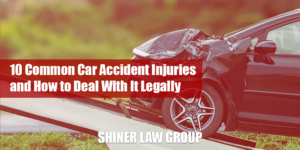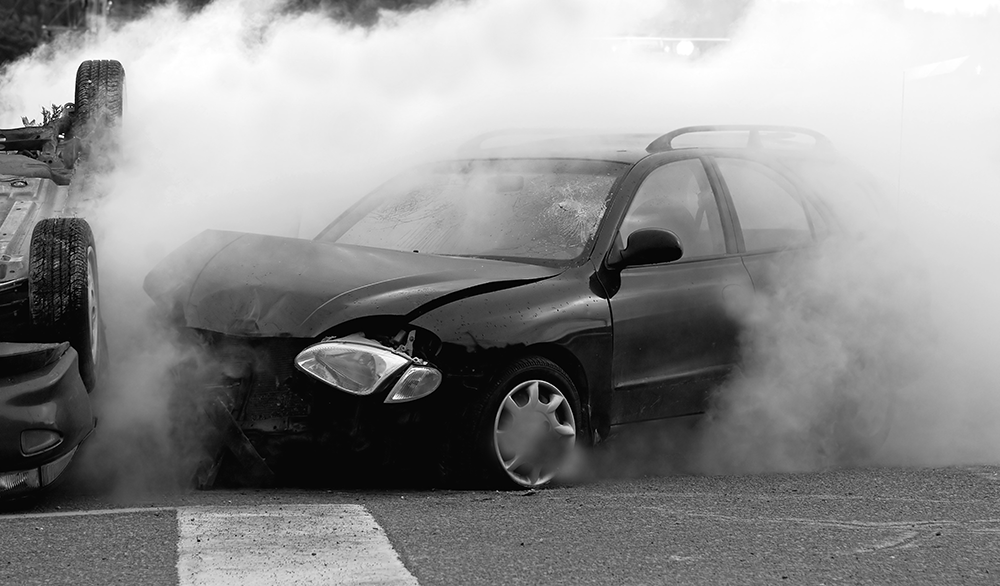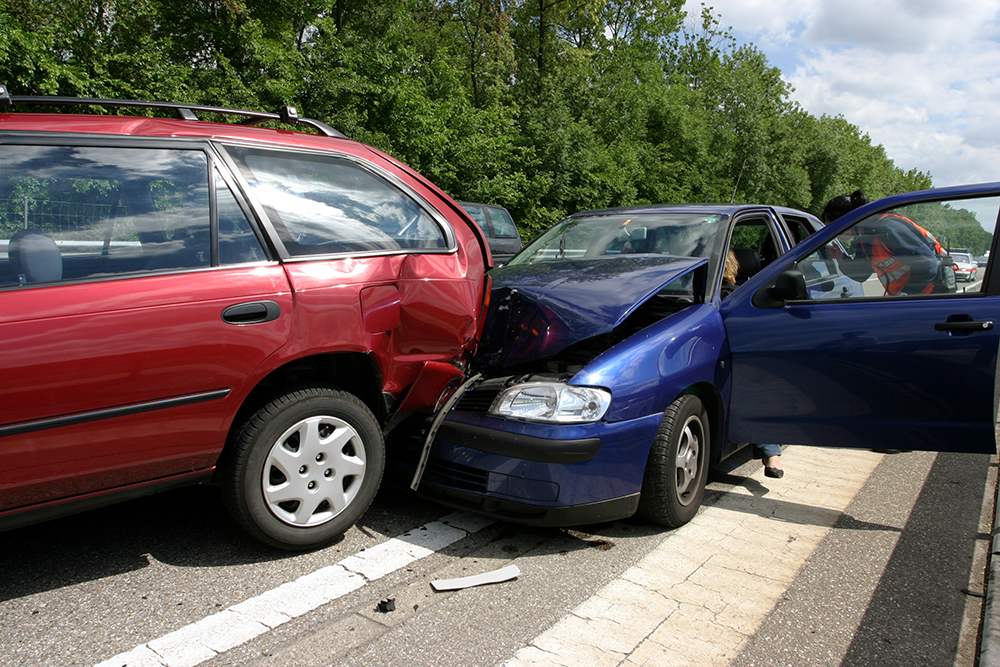
Regardless if it involves high-speed crashes and crowded highways, any car accident can prove to be damaging for the individuals caught up in it. Even the most minor looking accidents can end up causing life-altering injuries or extensive damage to property. Although there is no distinctive data differentiating fatalities and injuries from high-speed collisions to those that involve slower speeds, the over 403,626 recorded crashes in Florida in 2018 — resulting in 236,157 injuries and 3,135 deaths — point to car collisions in Florida as a major concern.
While Florida law has a no-fault system for car accident injuries, there are still situations where you can prove in court that the other party was negligent, thus allowing you to receive full compensation for damages. This is particularly true for accidents that cause qualifying injuries, such as broken bones or permanent scarring. The important thing to know is that there is a statute of limitations for filing a lawsuit. After all, the qualifying cause for filing one against the other party is determined by the extent of the injuries caused to your person instead of the monetary damages to your property.
Florida law provides for an opportunity to seek compensation, other than that of your own insurance, for four types of injuries:
- A lifelong injury
- Serious and lifelong scarring or disfigurement
- Significant, permanent loss of a bodily function
- Death
If you or someone you know in Florida gets involved in a car collision, you should contact a car accident lawyer right away.
Here are the ten most common car injuries that can qualify as one of the four types of injuries stated above to give you an even better understanding of the clause. Following through on that are the legal steps that you or someone you know should take with a Florida car accident lawyer if you ever find yourself in such a situation.
Types Of Injuries From Auto Accidents
1. Whiplash Injury
A sudden jolt to the body, whether through high or low speeds, can cause damage to both the bone and the soft tissues in your spine. While a whiplash injury may not usually be life-threatening, it can lead to a significant period of partial or full disability – which could prove to be excessively troublesome in the long run.
Whiplash commonly occurs as a result of a moving car crashing into the rear of an immobile car. The impact causes the head and neck to rock back and forth with an extreme force, causing the head and neck to be hyperextended. This abnormal motion is thought to cause the most damage to soft tissues holding the bones of the spine together.
2. Tendons and Ligaments
Tendons and ligament injury occur when the impact of the collision causes them to stretch beyond their safe range. Like the other types of injuries mentioned on this list, tendon and ligament damage can be highly debilitating, as these connective tissues are what connect your muscles and bones together, thus allowing for movement. However, unlike muscles, tendons and ligaments will take longer to heal if damaged, mainly because they receive much less blood flow than other muscle tissues.
3. Bruising
While it can be tempting to think of bruising as a minor injury, it can prove to be even more serious than it actually looks. Just because there are no visible lacerations to the skin doesn’t mean that there is no damage to everything else underneath it. In fact, bruises are caused by internal bleeding—which can be a sign of injury in your internal organs, muscles, and bones. Should there be excessive bruising to your body, then consult with a specialist immediately before it becomes worse.
4. Traumatic Brain Injury
According to the American Association of Neurological Surgeons, a traumatic brain injury (TBI) is any injury that disrupts the brain’s normal functions, whether it’s a result of blunt force trauma or other penetrating injuries. In a report by the Centers for Disease Control, there are about 235,000 hospitalizations for TBI every year, with around 50 to 70% of cases being the result of motor vehicle crashes in the United States. There are approximately 5.3 million people in the US living with disability as a direct result of TBI.
The symptoms of TBI can vary greatly among cases. The symptoms include, but are not limited to:
- Vomiting
- Lethargy
- Headache
- Confusion
- Paralysis
- Coma
- Loss of consciousness
- Dilated pupils
If you suspect yourself or someone you know to be suffering from TBI, especially if a car crash was involved, it’s best to call 911 immediately. Not only can it be excessively painful, but it could also be potentially fatal as well.
5. Wrist and Hand Injuries
During a collision, wrists and hands are particularly at risk, particularly because these are usually in front of you as you maneuver the steering wheel. In the event of any car accident, your wrists and hands are placed in even more danger, as these bear the brunt of the crash. This happens because a driver’s instinct is to always maintain control of the car by gripping the steering wheel.
In the best-case scenario, you may walk away with sprains that may take weeks to heal. However, in most cases, you can have broken bones and lasting nerve damage, which will negatively affect your quality of life. Damage to your wrists and hands can result in a difficulty in performing basic tasks, severely disabling you from your normal functions. For people who rely on their hands to make a living, such as in the case of most athletes, drivers, musicians, writers, artists, and many more, this can even mean a loss of livelihood.
6. Cuts
Some of the more obvious signs of a serious injury are cuts and lacerations, which are likely caused by broken glass from the windshield in the event of a crash. While cuts can sometimes be minor, they often result in scarring and disfigurement, especially if the cuts are on your face. Given the proximity of your face to the windshield, disfigurement is quite common in a car crash.
7. Scars
While scars are a result of cuts and lacerations, they are, in themselves, a qualifying cause to bring a claim outside of Florida’s no-fault system. Scarring and disfigurement of the face are particularly detrimental, especially if the victim works in entertainment or other areas where keeping up with one’s appearance is necessary. Aside from these, disfigurement is a permanent and visible damage, which can only be resolved by expensive medical surgeries that one may not always be able to afford easily.
8. Knee Injuries
Another potentially debilitating injury that is, unfortunately, very common in car crashes are knee injuries. Because of its positioning while an individual drives, a person’s knees are very prone to hitting the hard surfaces of the dashboard or even the steering wheel when an accident occurs. In the case of a side collision, the impact can twist your knees and legs in an unnatural way—causing even more pain and muscle damage in the long run.
In most cases, knee injuries require surgery and intensive physical therapy to recover. If the crash is particularly bad, however, a person can get amputated and lose the ability to walk again.
9. Bone Fractures
Aside from knee and wrist injuries, bone fractures can occur in any part of your body—even in relatively minor crashes! Broken bones almost always require surgery and extensive treatment to correct.
Such injuries can take months to heal, which will restrict much of your physical activity in the process. This is particularly difficult for athletes and other professions whose income directly depends on their ability to perform physical feats and acts.
10. Post-Traumatic Stress Disorder
Physical injuries are not the only cause of concern when it comes to car crashes, no matter how minor these accidents may be. The trauma caused by crashes can result in serious mental and emotional damage, often translating into lifelong debilitating injuries that require both physical and mental treatments.
What to do in case of a minor car collision
No matter how much of a careful or defensive driver you might be, there is a high probability that you may find yourself in a minor car collision with another driver. In such an event, you should remember to keep a cool head and make decisions based on logic instead of emotion. It’s important to remember that no amount of panicking or rage will make the situation better—in fact, it can make things even worse if you lose your cool.
To help you deal with this situation, here are four things you should remember to do when dealing with a minor car collision.
1. Stop the car and call 911
If your vehicle is still running and in motion, then the first thing to do is hit the brakes and assess the immediate surroundings. Check if there are any injuries you or your passengers may have sustained, or if your car was in any way damaged or deformed.
In the event of an injury to yourself or your passengers, it’s best not to move around right away and instead call for an ambulance and the police. Don’t worry about damage to your car just yet—if you have the required Personal Protection Insurance, then you can use that to cover your expenses. You and your passengers’ safety are the primary concern in this event.
The best thing to do if you think you or any of your passengers are injured is to stay still and wait for medical services to arrive. If you are reasonably confident that you have not been injured, you can notify incoming traffic by using your hazard lights, setting up flares, or opening the hood and trunk of your car.
Remember that even without an injury, you are required by Florida law 316.062 to call the police and make a report. Failing to do so can mean facing up to 60 days of jail time—so ensure to add this on your things to do when faced with an accident. If the crash involved any injury or fatality, then not reporting the accident is considered a crime.
2. Document the crash
If possible, you should take note of the other driver’s name, address, phone number, driver’s license number, license plate, car model and make, and other contact information. Aside from these, make sure to take both photo and video documentation of the crash site—be as liberal as you can with the angles you can take it from. Make sure to fully document the damage to both cars to your own body and/or your passengers, and the environment as well.
You should also make notes about the time of day, exact location, and the events that you remember leading up to the crash, including road conditions, the weather, and the traffic situation. This information will be required to process insurance claims and will be especially vital in court proceedings should it reach that point.
3. Do not admit fault
One important thing to remember when the police arrive is to not admit that you are at fault—even if you think that it was! As the old saying goes, anything you say can and will be held against you.
This is important because in cases of serious injury that exceed the no-fault laws’ parameters, Florida courts will adhere to comparative negligence, where both plaintiffs and defendants can be held partially at fault. In turn, this will affect the calculation of compensation that needs to be paid, which could make it lower than what you were expecting to receive. What you should disclose immediately are any injuries that need to be attended to quickly, as well as the presence of any witnesses nearby.
4. Call your car accident lawyer before informing your insurance provider
While the impulse is usually to inform your insurance right away, it’s best to obtain legal advice from a car accident attorney before calling your insurance company. This step is important to ensure that you are giving the right statements that will prove to be advantageous in speeding up your insurance claims and prevent you from admitting any fault prematurely.
If at all possible, gather every piece of documentation related to the crash—including the medical bills, transportation costs, future medical treatment costs (if applicable), the estimated loss of income, and other damages, such as pain and emotional damage to both you and your family. An experienced lawyer that focuses on car accidents in Florida will be able to advise you on the applicable damages that can be used to demand compensation from insurance providers and even the other party.
Speak With An Accident Lawyer Today For Help Regarding Your Accident
Nobody wishes for car accidents to happen, much less any of the injuries that may result from it. However, in the event of a crash that results in serious bodily harm, then it’s best to know your rights and understand the steps. Doing so can ensure that you are justifiably compensated for any pain, injury, loss of bodily function, or permanent disfigurement that you or someone you know may suffer. It’s best to contact an experienced and local car accident attorney who will know the ins and outs of the local justice system and know how to make the law work for you.
Shiner Law Group is a group of passionate Florida car accident lawyers who specialize in representing people who suffer injuries and damages through no fault of their own. Our injury lawyers also take cases that involve slip and fall accidents, wrongful deaths, pedestrian accidents, animal attacks, and more. Contact us today for immediate assistance.


